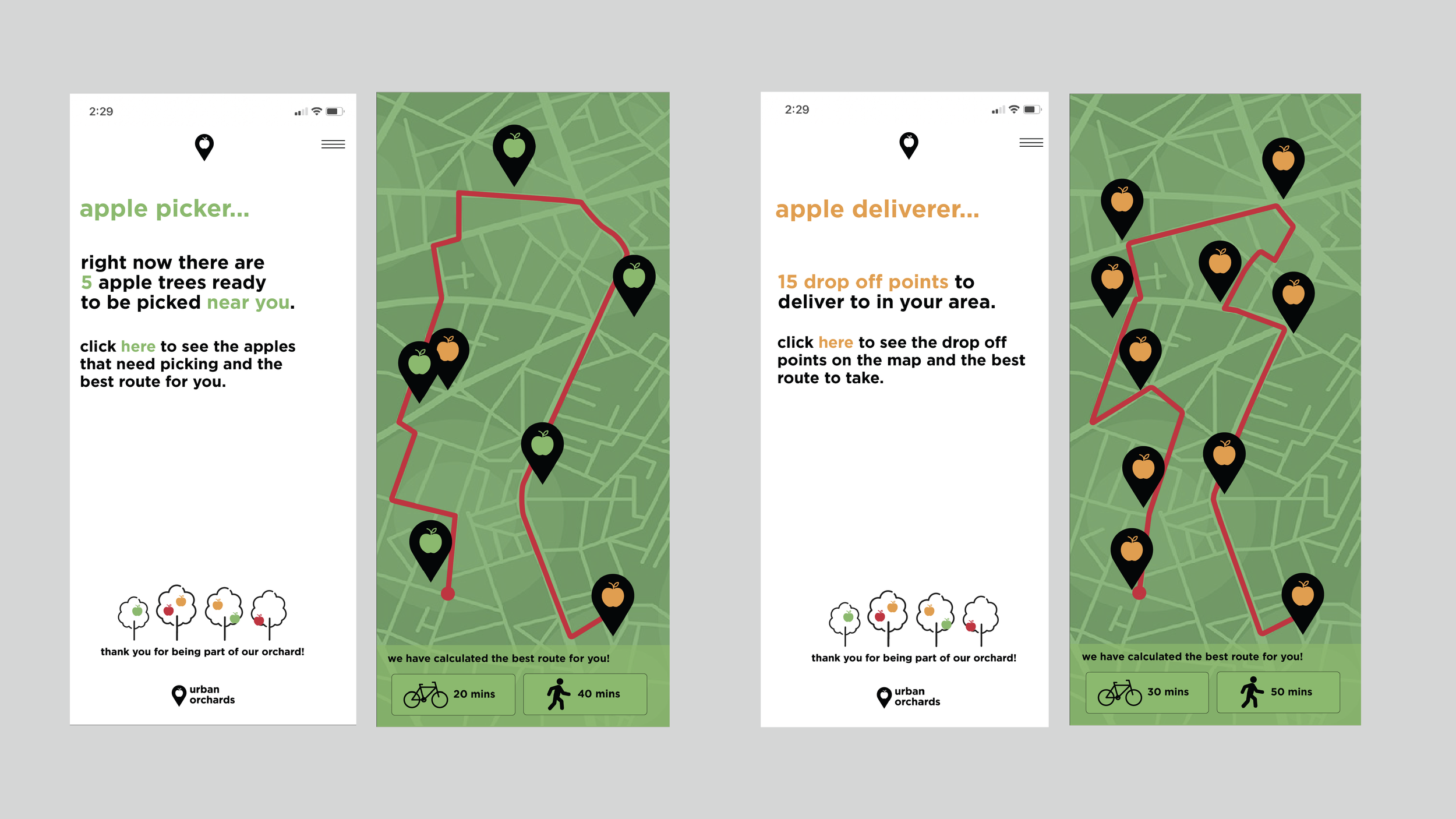tomorrow’s menu
RSA brief tomorrow’s menu sets the task of redesigning our food systems with the aim of protecting biodiversity. The brief states how the current methods to produce food, and its consumption, have a catastrophic impact on the natural world.


I decided I wanted to focus my project on the relationship between climate change and food, and how we can help prevent climate change through our diet.

Above are the three possible insights that I chose to explore. I was most intrigued by the importation of food, and how we can tackle this issue.
The importation of food is a significant contributor to climate change due to the massive carbon output that it creates. I wanted to focus my project on investigating methods that could raise awareness for the catastrophic repercussions that will occur if we continue to import such a large amount of food.


Although we’ve grown over 2500 different apple varieties in the UK, we are still importing large amounts of apples from South Africa and New Zealand. This is due to the UK not being able to grow enough apples to feed its population, due to apple orchards numbers drastically dropping.
how can we bring back orchards?
Apple trees are not uncommon, large amounts of people happen to have apple trees in their gardens but often don’t optimise the fruit they could gain from them. I wanted to create a platform that could allow communities to combine and share their apple trees. This could result in drastically reducing food waste, and promoting the importance of eating locally grown produce.
I created the app, Urban Orchards, which allows communities to track the apple trees within it, to come together and form an urban orchard. As well as preventing food waste, being part of the orchard engages communities and educates them on how they can help make sustainable choices.



Urban Orchards aims to utilise existing resources to feed communities with locally grown produce.
The app allows for all types of users - those with apple trees who are willing to donate their trees to the orchard, and those who have volunteered to pick the apples or collect apples to then be delivered to members of the community.






